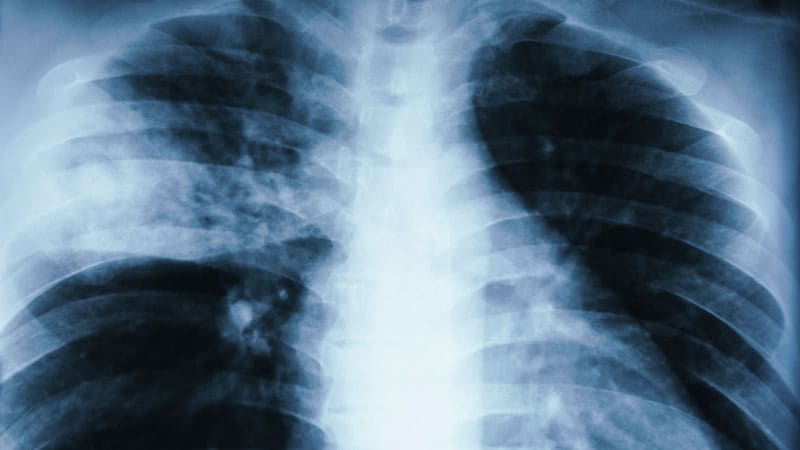TOPLINE:
Hospitalized older adults with community-acquired pneumonia (CAP) and sepsis exhibit impaired neutrophil function; however, glycolytic metabolism is not the driver of neutrophil dysfunction.
METHODOLOGY:
- This prospective observational study conducted between November 2019 and August 2023 assessed the effect of pneumonia with sepsis on neutrophil effector functions and glycolytic metabolism in hospitalized older adults with CAP and sepsis.
- The study recruited 25 older adults with CAP and sepsis (mean age, 82.63 years; 64% women) within a median of 26 hours following admission and 32 age-matched control individuals without CAP (mean age, 80.83 years; 53.1% women).
- Healthy young individuals were also recruited from the research staff to compare their glycolytic metabolism with the older adults.
- All participants were negative for severe acute respiratory syndrome coronavirus 2 and influenza.
- Neutrophils were isolated from whole blood using a Percoll gradient, and migration, degranulation, oxidative burst, and glycolytic metabolism were assessed through respective assays.
TAKEAWAY:
- Neutrophils from patients with CAP had a significantly lower chemotactic index, velocity, and directness toward interleukin 8 than those from control participants (P
- Patients with CAP also had a significantly higher neutrophil degranulation than control participants, as demonstrated by raised plasma neutrophil elastase (7.71 vs 3.96 ng/mL; P P = .0027) levels.
- Basal neutrophil glycolysis did not differ significantly among patients with CAP and their matched control participants; however, it was significantly lower in healthy young adults (P = .0007).
- Likewise, the RNA expression of the enzymes involved in the glycolytic pathway also did not differ between the patients with CAP and their respective controls.
IN PRACTICE:
“Overall, these data suggest impaired glycolysis is not linked to the neutrophil dysfunction observed in older adults with CAP,” the authors wrote. “There has been increasing interest in targeting immunometabolism in sepsis; our data provide caution that each patient population should be carefully phenotyped with consideration for known factors, which influence immune cell function,” they added.
SOURCE:
The study was led by Frances Grudzinska, Institute of Inflammation and Ageing, University of Birmingham, Birmingham, and School of Translational Medicine, University of Nottingham, Nottingham, England. It was published online on December 16, 2024, in Thorax.
LIMITATIONS:
This study did not assess the rates of mitochondrial respiration and shifts toward the glycolytic pathway, a key regulator of reactive oxygen species and neutrophil extracellular traps. The direct measurement of glycolysis and transcriptome could not be performed due to a low sample size. Additionally, the population was predominantly of White British ethnicity, limiting the generalizability of the results to the global population.
DISCLOSURES:
This study was supported by grants from the Dunhill Medical Trust, Health Data Research UK, Asthma + Lung UK, Medical Research Council, Efficacy and Mechanism Evaluation, and Health Technology Assessment. No other conflicts of interest were reported.
This article was created using several editorial tools, including AI, as part of the process. Human editors reviewed this content before publication.
Source link : https://www.medscape.com/viewarticle/neutrophil-dysfunction-older-adults-pneumonia-not-glycolysis-2025a100008z?src=rss
Author :
Publish date : 2025-01-07 10:29:53
Copyright for syndicated content belongs to the linked Source.
